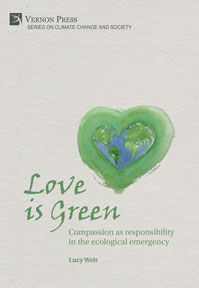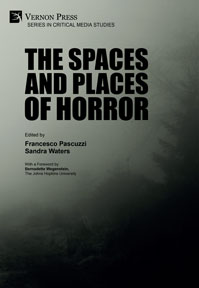Search
Browse
by Publication status
by Subject
Anthropology (26) Art (171) Business and Finance (38) Cognitive Science and Psychology (63) Communication and Journalism (51) Economics (116) Education (71) History (169) Human Geography (23) Interdisciplinary (43) Language and Linguistics (178) Law (16) Music Studies (18) Philosophy (222) Political Science and International Relations (127) Sociology (404) Statistics and Quantitative Methods (21)by Series
Series in Literary Studies (62) Series in Philosophy (57) Series in Education (49) Series in Sociology (42) Series in World History (31) Series in Politics (30) Bridging Languages and Scholarship (26) Series in Language and Linguistics (25) Cognitive Science and Psychology (20) Series in Philosophy of Religion (20) Series in American History (19) Series in Art (19) Critical Perspectives on Social Science (16) Series in Cinema and Culture (16) Curating and Interpreting Culture (15) Series on the History of Art (14) Series in Anthropology (13) Series in Critical Media Studies (13) Economics (13) Series in Business and Finance (12) Series in Music (12) Series in Performing Arts (9) Philosophy of Personalism (8) Series in Communication (8) Series in Law (8) Series in Economic Methodology (7) Series on Climate Change and Society (7) Classics in Economics (6) Series in Economic Development (6) Women's Studies (6) Philosophy of Forgiveness (5) Series in Built Environment (5) Series in Economic History (5) Series in Philosophy of Science (4) Series in Social Equality and Justice (4) Series on the History of Science (4) Serie en Sociología (3) Series in Contemporary History (3) Series in Creative Writing Studies (3) Series in Design (3) The Interdisciplinary Built Environment (3) Series in Heritage Studies (2) Series in Innovation Studies (2) Serie en Ciencias Políticas (1) Serie en Comunicación y Medios (1) Serie en Entorno Construido (1) Serie en Estudios Culturales (1) Serie En Estudios Literarios (1) Serie en Filosofía (1) Serie en Música (1) Series in Classical Studies (1) Series in Economics of Technological Change (1) Series in Philosophy of Race (1) Series in Urban Studies (1)by Language
English Spanishby Author
Browsing with filters

Love is Green: Compassion as responsibility in the ecological emergency
July 2019 / ISBN: 978-1-62273-372-9Availability: In stock
244pp. ¦ $61 £46 €52
This book links three themes, non-dualistic agency, ‘the good’ of systems, and compassionate attunement, and relates them to the ecological emergency. The author begins by examining how we currently understand our ability to choose what we do, our agency and conclude that this is dualistic: we think of an action to do, and then we physically act. Yet an understanding that we are enmeshed in context means our capacity to act freely dissolves in the mesh. We evolved capacities for consciousness and awareness, capacities that allow us to realise that we are here, now but that do not inevitably imply choice. Our capacity for ‘realisation’ gives us the ability to elicit an emotional response. When we understand our enmeshment, we can attune to a deep compassion for ourselves and indeed for all systems unfolding through time. Compassionate attunement allows a different set of options for action to become available to us. This then shifts how we respond to ourselves, our human relationships and to the ecological emergency we are currently embroiled in. This work is inspired by the great Kamakura Zen Master Eihei Dōgen. The book’s contribution is to extend and link the notion of practice-realisation with the literature on evolutionary biology and entropy maximisation which allows us to speak of ‘the good’ of systems. Systems unfold as ‘good’ for us when biodiversity maximisation occurs. By considering the ecological emergency in light of compassionate attunement, we open ourselves to a new array of possibilities for action. Some of these the author outlines in the conclusion, relating them to existing literature on compassionate achievement and compassionate communication, to show how our this practice shifts our relationship to ourselves, to one another, and to the ecological emergency, thus changing the course of human history.
The Spaces and Places of Horror
Edited by
Francesco Pascuzzi, Rutgers University
and Sandra Waters, Rutgers University
Availability: In stock
299pp. ¦ $64 £48 €55
This volume explores the complex horizon of landscapes in horror film culture to better understand the use that the genre makes of settings, locations, spaces, and places, be they physical, imagined, or altogether imaginary. In The Philosophy of Horror, Noël Carroll discusses the “geography” of horror as often situating the filmic genre in liminal spaces as a means to displace the narrative away from commonly accepted social structures: this use of space is meant to trigger the audience’s innate fear of the unknown. This notion recalls Freud’s theorization of the uncanny, as it is centered on recognizable locations outside of the Lacanian symbolic order. In some instances, a location may act as one of the describing characteristics of evil itself: In A Nightmare on Elm Street teenagers fall asleep only to be dragged from their bedrooms into Freddy Krueger’s labyrinthine lair, an inescapable boiler room that enhances Freddie’s powers and makes him invincible. In other scenarios, the action may take place in a distant, little-known country to isolate characters (Roth’s Hostel films), or as a way to mythicize the very origin of evil (Bava’s Black Sunday). Finally, anxieties related to the encroaching presence of technology in our lives may give rise to postmodern narratives of loneliness and disconnect at the crossing between virtual and real places: in Kurosawa’s Pulse, the internet acts as a gateway between the living and spirit worlds, creating an oneiric realm where the living vanish and ghosts move to replace them. This suggestive topic begs to be further investigated; this volume represents a crucial addition to the scholarship on horror film culture by adopting a transnational, comparative approach to the analysis of formal and narrative concerns specific to the genre by considering some of the most popular titles in horror film culture alongside lesser-known works for which this anthology represents the first piece of relevant scholarship.
Post-Industrial Precarity: New Ethnographies of Urban Lives in Uncertain Times
Edited by
Gillian Evans, University of Manchester
Availability: In stock
240pp. [Color] ¦ $89 £66 €75
The United Nations predicts that by the year 2050 almost 70% of the planet’s population will be living in cities. The onus on social scientists is to explain the contemporary challenges posed by the urbanization of the world. A growing body of literature raises the alarm about the precarity of human existence in the uncertain conditions of rapidly transforming contemporary cities. This volume brings together a diverse collection of new ethnographies of precarious lives in various cities of the world. The specific focus on post-industrial cities in the UK allows for a wider consideration of the urban conditions and the political and economic climates which combine to produce extremely precarious living conditions for urban populations elsewhere in the world.The productive consequence of the comparisons and contrasts of various urban contexts, made possible by the volume, is an analytical focus on what it means for humans to live and occupy different subject positions under the advancing conditions of contemporary global capitalism. The volume’s chapters are also united by the shared commitment of early career social science scholars to ethnography as a research method. This gives a common methodological focus to diverse topics of substantive concern located in various cities of the world from Manchester, Newcastle and Salford in the north of England, to Detroit in the USA, Rio de Janeiro in Brazil, Turin in Italy and Beirut in Lebanon. Ethnography, relying as it does on long-term participant observation and in-depth open-ended interviewing, is uniquely valuable as a resource for bringing to life the unpredictable ways in which humans survive and develop forms of resilience among, for example, the ruins of dying cities. Ethnography also enables social scientists to understand and add depth to the surprising stories and apparent contradictions of everyday protest in the face of the increasing privatization of the public good and extreme inequalities of wealth. Ethnographically grounded analyses of urban life are therefore uniquely positioned to explain and critically analyse the new politics of popular resistance as the people who feel ‘left behind’ by society, or expelled from what might be described as the ‘exclusification’ of urban environments, push back against an economy and politics that appears to exist only for the private benefit of an indifferent elite population.
Post-Industrial Precarity: New Ethnographies of Urban Lives in Uncertain Times
Edited by
Gillian Evans, University of Manchester
Availability: In stock
240pp. ¦ $59 £44 €50
The United Nations predicts that by the year 2050 almost 70% of the planet’s population will be living in cities. The onus on social scientists is to explain the contemporary challenges posed by the urbanization of the world. A growing body of literature raises the alarm about the precarity of human existence in the uncertain conditions of rapidly transforming contemporary cities. This volume brings together a diverse collection of new ethnographies of precarious lives in various cities of the world. The specific focus on post-industrial cities in the UK allows for a wider consideration of the urban conditions and the political and economic climates which combine to produce extremely precarious living conditions for urban populations elsewhere in the world.The productive consequence of the comparisons and contrasts of various urban contexts, made possible by the volume, is an analytical focus on what it means for humans to live and occupy different subject positions under the advancing conditions of contemporary global capitalism. The volume’s chapters are also united by the shared commitment of early career social science scholars to ethnography as a research method. This gives a common methodological focus to diverse topics of substantive concern located in various cities of the world from Manchester, Newcastle and Salford in the north of England, to Detroit in the USA, Rio de Janeiro in Brazil, Turin in Italy and Beirut in Lebanon. Ethnography, relying as it does on long-term participant observation and in-depth open-ended interviewing, is uniquely valuable as a resource for bringing to life the unpredictable ways in which humans survive and develop forms of resilience among, for example, the ruins of dying cities. Ethnography also enables social scientists to understand and add depth to the surprising stories and apparent contradictions of everyday protest in the face of the increasing privatization of the public good and extreme inequalities of wealth. Ethnographically grounded analyses of urban life are therefore uniquely positioned to explain and critically analyse the new politics of popular resistance as the people who feel ‘left behind’ by society, or expelled from what might be described as the ‘exclusification’ of urban environments, push back against an economy and politics that appears to exist only for the private benefit of an indifferent elite population.
Maximizing Mental Health Services: Proven Practices that Promote Emotional Well-Being
Nicholas D. Young, American International College
et al.
Availability: In stock
152pp. ¦ $43 £32 €36
'Maximizing Mental Health Services: Evidence-Based Practices that Promote Emotional Well-Being' examines best therapeutic practices for patients, therapists, graduate professors, family members and all who struggle to find the most effective treatment modalities for those dealing with mental health challenges. Mental health issues are rising at an alarming rate, while positive therapeutic outcomes have not kept pace and remain low for many conditions, making an investigation of evidence-based treatment options critically important to the helping profession. While certain types of therapy bring success to specific clients, these modalities cannot be easily applied to all client profiles. Understanding the strengths of each modality and how to match them to the respective needs of the client will be emphasized. Furthermore, the impact of counselors’ own traits on the client-therapist relationship is an important and often overlooked topic that will be explored. Therapy practices have changed over the past decade to include non-traditional options; therefore, the authors investigate the ways in which these practices have either helped or hindered patient success. Lastly, the book offers readers information on resources for further information on the evidence-based practices presented within.






